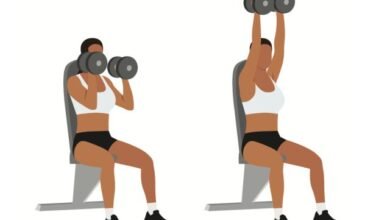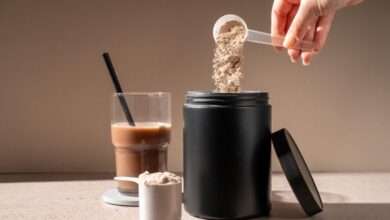The Ultimate Guide To Foods High In Zinc: HealthifyMe

The mineral zinc is necessary for many bodily purposes, such as proper immune system function, wound healing, enzymatic reactions, protein synthesis, DNA synthesis, gene expression, and growth and development. According to research, consuming zinc additionally helps with Wilson disease, burns, diarrhoea, acne, diabetes, and of course, zinc deficiency. But because the body cannot store zinc, one must consume the appropriate daily allowance of zinc through diet.
Although zinc can be present in a wide variety of foods, the body does not absorb zinc in the same way from each one of them. Zinc gets more readily absorbed from animal-based diets than from plant-based foods. Consequently, those who consume a diet high in grains and legumes require more zinc than those who consume meat and other animal products. This article lists the best zinc-rich foods to include in the diet.
Recommended Intake of Zinc
The amount of daily zinc requirement varies from person to person based on their age, gender, and medical condition. According to a report from the National Institute of Health (NIH), the recommended dosage for different age groups is as follows:
- Birth to 6 months: 2 mg
- Infants (7–12 months): 3 mg
- Children (1–3 years): 3 mg
- Children (4–8 years): 5 mg
- Children (9–13 years): 8 mg
- Teen males (14–18 years): 11 mg
- Teen females (14–18 years): 9 mg
- Adult males: 11 mg
- Adult females: 8 mg
- Pregnant women: 11 mg
- Breastfeeding women: 12 mg
Health Benefits of Zinc
Many of the body’s regular processes and systems depend on the mineral zinc. Here are some benefits of zinc that you must know.
1. Heals Wounds and Injuries Faster
Zinc is known to promote collagen synthesis, support immune function, and aid in the body’s inflammatory response. These properties make zinc an effective mineral for speeding up the healing of wounds. Hospitals often use zinc as a treatment for burns, ulcers, and specific skin injuries.
2. Digestive Tract Health
Zinc has a positive impact on the digestive tract. It helps maintain the integrity of the cells lining the digestive tract, which, in turn, facilitates optimal absorption of nutrients from the food we consume.
3. Enhanced Immune System
Zinc plays a vital role in cell signalling, immune cell function, and reducing oxidative stress. These functions are essential for a robust immune system. Research suggests that zinc supplements can significantly reduce the risk of infections and enhance the immune response, particularly in older adults. Additionally, zinc consumption can boost the production of T-cells, which are crucial for the immune system’s ability to combat infections.
4. Acne Treatment
Acne often results from factors like clogged oil-producing glands, bacterial growth, and inflammation. Studies indicate that zinc can effectively treat acne by reducing inflammation, inhibiting the growth of acne-causing bacteria, and controlling oil gland activity. Zinc can be beneficial when included in the diet or applied topically.
5. Eye Health and Age-related Macular Degeneration
Zinc also contributes to the health of our eyes, particularly in the macula, a region of the retina. The macula plays a role in producing melanin, a pigment that protects the eyes. While research on the effects of zinc supplementation in preventing age-related macular degeneration is ongoing, zinc may help delay or mitigate cellular damage in the retina.
6. Anti-inflammatory Properties
Zinc’s ability to reduce oxidative stress and specific inflammatory proteins makes it an effective remedy for reducing inflammation in the body.
7. Cognitive Function Support
Zinc is a vital trace element that supports cognitive function. Inadequate zinc levels in the body can lead to neuronal degeneration and cognitive impairment. Zinc is found in high concentrations in critical brain regions, including the amygdala, auditory brain stem, cerebral cortex, and hippocampus. Within the brain, zinc functions as both a neurotransmitter and a second messenger, actively participating in essential processes. It aids in regulating long-term potentiation in the hippocampus, a process crucial for learning and memory.
8. Enzyme Function Improvement
Zinc is indispensable for the functioning of approximately 300 enzymes in the body, which are involved in critical processes like digestion, metabolism, and nerve health.
9. Improved Fertility
Zinc plays a significant role in regulating hormonal functions related to regular ovulation, benefiting women’s fertility. It is equally important for men, as it contributes to healthy sperm formation.
Summary
Zinc offers a range of health benefits. It supports the immune system by boosting T-cell production and aids in healing wounds. Zinc contributes to digestive tract health, reduces inflammation, and can be effective in treating acne. Additionally, zinc plays a role in maintaining eye health and supporting cognitive functions. It is essential for enzyme function and can enhance fertility in both men and women. Incorporating zinc-rich foods into your diet or considering supplements can be a valuable part of promoting overall health and well-being.
Zinc-rich Foods to Try
Zinc is present in multiple foods, including non-vegetarian options such as meat and seafood, as well as vegetarian options such as grains, beans, and nuts. Here are a few of the common zinc-rich food options:
Oysters
Oysters contain the most zinc in comparison to any other food item. A 3-ounce serving of oysters that are cooked, breaded, and fried contains a significant 74.1 milligrams of zinc, which is equivalent to 673% of an average daily value.
Crab
Another shellfish packed with zinc is a crab. A 3-ounce serving of cooked Alaskan king crab has 6.48 milligrams of zinc, which is equal to 59% of the recommended daily value. Eating shellfish in adequate amounts may help reach the daily zinc and calcium intake levels.
Red Meat
Red meat, especially beef, contains a large amount of zinc content in it. A 3-ounce serving of roasted red meat provides approximately 8.44 milligrams of zinc. One of the primary dietary sources of vitamin B12 is red meat.
Pork
Pork chops also offer a lot of iron and zinc. A serving of 4 ounces of pork chops contains 2 milligrams of zinc. But when it comes to preparing, cooking, and storing meat—like pork chops—food hygiene is essential.
Lobster
Along with oysters and crab meat, lobster is also a shellfish that includes plenty of zinc. A 3-ounce serving of cooked lobster has 6.18 milligrams of zinc. Lobster can be paired with beans or peas and enjoyed as a zinc-filled meal.
Omega-3 fatty acids and selenium are both abundant in lobsters. They could also be the primary protein source in a dish.
Chickpeas and Other Legumes
Legumes, beans and nuts contain significant amounts of zinc. Chickpeas are also a great source of this nutrient. One hundred grams of chickpeas contains 1.5 milligrams of zinc, and a half-cup of kidney beans has 0.9 milligrams of zinc in it.
In addition, legumes contain B vitamins, iron, copper, magnesium, manganese, phosphorus, fibre, protein, and carbohydrates. Additionally, they have a minimal fat content by nature and almost no saturated fat.
Cashews and Other Nuts
Nuts are excellent sources of zinc for one’s daily balanced diet. Fifty grams of cashews contain 3 milligrams of zinc. Consuming cashews and other nuts is a tasty and healthy snacking way to increase zinc intake throughout the day.
Nuts are an excellent alternative to animal protein. Most nuts are rich in monounsaturated fats, which is the “good” type of fat.
Oats
Half-cup of oats provides 1.5 milligrams of zinc. Oats contain phytates, which can affect how well your body absorbs zinc. Antioxidants known as avenanthramides, which are absent from other cereal grains, are abundant in oats. By lowering inflammation and relaxing arteries, these antioxidants enhance heart health.
Hemp Seeds and Other Seeds
Seeds are another excellent source of zinc. A 3-tablespoon serving of hemp seeds has almost 3 milligrams of zinc. An ounce of pumpkin seeds contains 2.2 milligrams of zinc. Sesame seeds have 0.6 milligrams per tablespoon.
Despite coming from the Cannabis sativa plant, hemp seeds have no psychoactive properties. Omega-3s and omega-6s, among other beneficial fatty acids, are abundant in these tiny, brown seeds, along with fibre and protein.
Tofu
A hundred-gram serving of tofu has nearly 1.8 milligrams of zinc. Since tofu absorbs flavours well, many vegans and vegetarians use it to replace meat in various types of recipes. Made from soybeans, tofu is also an excellent source of protein, calcium, manganese, and magnesium.
Summary
By including foods high in zinc in meals, one can incorporate zinc into their diet. There are several options available, both vegetarian and non-vegetarian. While chickpeas and other legumes, cashews and other nuts, tofu, and oats are vegetarian options, oysters, crabs, red meat, pork, and lobsters are non-vegetarian foods high in zinc. Sesame, hemp, pumpkin, and squash seeds are among the seeds that are high in zinc. Zinc is in many types of meat, but red meat is an excellent source. Shellfish are low-calorie, high-nutrient sources of zinc.
Signs of Zinc Deficiency
Zinc is an essential nutrient that works towards the overall development and improvement of the body. However, people with digestive disorders do not absorb zinc well, which might cause them to develop zinc deficiency.
Here are some signs of zinc deficiency:
- Poor appetite
- Diarrhoea
- Loss of taste or smell
- Hair loss
- Depressed mood
- Delayed wound healing
- Decreased immunity
- Skin infections
- Stunted growth
- Unregulated weight loss
- Mental and physical lethargy
Potential Side Effects
While zinc offers numerous health benefits, it’s crucial to be aware of potential side effects and limitations:
- Taking doses of zinc exceeding 40 mg daily can lead to reduced copper absorption by the body. It can have implications for overall health, as copper is also an essential mineral.
- It’s important to note that taking very high doses of zinc, particularly in the range of 10-30 grams in a single dose, can indeed be fatal. However, it’s worth mentioning that such extreme quantities are rarely encountered in typical dietary or supplement intake. It might cause problems such as stomach pain, vomiting, and many other problems.
- Applying zinc topically to bleeding or freshly wounded skin may cause sensations like burning, stinging, itching, and tingling. It’s advisable to exercise caution when using zinc in such situations.
- Inhaling zinc through the nose, mainly through nasal sprays containing zinc, can be unsafe and may lead to a permanent loss of smell. It’s best to avoid the use of such products.
- While high doses of zinc can lead to the mentioned symptoms, it’s important to emphasise that zinc is generally considered non-toxic when consumed within the recommended daily limits. For instance, women over 18 should not exceed 40 mg of zinc daily, and those between 14 and 18 years old should limit their intake to 34 mg daily.
Summary
While zinc offers significant health benefits, it’s essential to be aware of potential side effects and exercise moderation in its use. Excessive zinc intake, particularly in extreme quantities, can have severe consequences, including reduced copper absorption and the risk of fatal overdose. Gastrointestinal discomfort, especially nausea and vomiting, may occur with very high doses. When applying zinc topically, be cautious of potential sensations like burning, stinging, itching, and tingling. Additionally, inhaling zinc through the nose, such as in nasal sprays, can result in permanent loss of smell. However, it’s important to reiterate that zinc is generally safe when consumed within recommended limits, and these potential side effects are more likely to occur with excessive intake. Always consult with a healthcare professional before significantly increasing zinc intake.
HealthifyMe Suggestion
What’s the easiest way to get your daily zinc requirement? prepare a snack which can last for days! As mentioned earlier seeds are high in zinc, so make this seed cracker in batches and add it as a snack in your daily diet.
In a large mixing bowl, combine 1 cup mix seeds, salt, a teaspoon of garlic powder and 0.75 cup of water. Let the mixture sit for at least 20 minutes to thicken before moving on to the next step. Preheat your oven to 300°F. Line a baking sheet with parchment paper. Stir the seed mixture and transfer it onto the baking sheet. Use a spatula to smooth the surface of the mixture. Then, use a knife to score cracker shapes into the mixture. Bake it for 50 minutes, or until the tops of the crackers start to turn a golden brown. Remove the baking sheet from the oven and cool for 20-30 minutes. Enjoy immediately, or place the crackers in an airtight container and store for up to 7 days. This is a good accompaniment for zinc-rich chickpea hummus or a white bean dip too.
The Final Word
The mineral zinc is crucial for good health since it helps with immune system enhancement, wound healing, and other critical processes. The best sources of zinc are food like seafood, beans, red meat, nuts, seeds, and fortified foods. There are many different options for zinc-rich foods, both vegetarian and non-vegetarian. Certain zinc supplements and tablets are also available on the market but do not take them without a doctor’s prescription. Supplements are best when there is a deficiency.
Extra zinc is needed by those who are breastfeeding, pregnant, or following a plant-based diet. However, consuming too much zinc through food can have several adverse effects, including allergic responses.
Disclaimer: The purpose of this article is just to disperse knowledge and raise awareness. It does not intend to replace medical advice from professionals. For further information, please contact our certified nutritionists Here.
Frequently Asked Questions
Q: What is zinc, and why is it essential for health?
A: Zinc is an element which is essential in small amounts for human health, sense of taste and growth. It performs the function of cell signalling, immunes cell function and reduces oxidative stress, which makes it a necessary element for keeping the immune system strong.
Q: What are the primary dietary sources of zinc?
A: The richest food sources of zinc include meat, fish, and seafood, while the vegetarian sources are beans, cashews and nuts, oats, and tofu.
Q: How does zinc contribute to the immune system and immune function?
A: An essential part of the immune system that fights off infections is the T-cell, and zinc can increase the production of these cells. Zinc also performs the function of cell signalling, immunes cell function and reduces oxidative stress, which makes it a necessary element for keeping the immune system strong.
Q: Can zinc-rich foods aid in wound healing and tissue repair?
A: Zinc boosts collagen synthesis, immune function and inflammatory response, which makes zinc-rich foods efficient in proper healing of wounds.
Q: What role does zinc play in supporting growth and development, especially in children and adolescents?
A: Zinc is vital for cellular growth, cellular differentiation and metabolism, and deficiency limits childhood growth and decreases resistance to infections.
Research Sources
Zinc supplementation enhances linear growth in school-aged children – NCBI.
Zinc in Cognitive Impairment and Ageing
How does zinc impact the sense of taste and smell – National Institutes of Health (.gov)
NIH’s report on Zinc for prevention and treatment of the common cold




